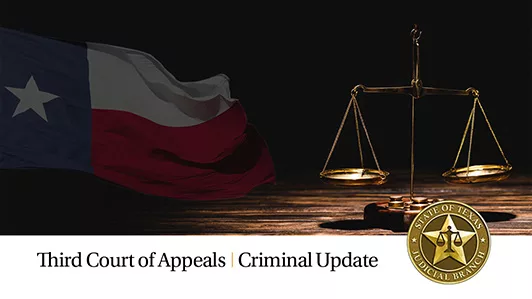The following are summaries of selected criminal opinions issued by the Third Court of Appeals from June 2023. The summaries are overviews; please review the entire opinions. Subsequent histories are current as of Nov. 1, 2023.
POLICE INTERROGATIONS – TRANSLATION ISSUES: Trial court did not abuse its discretion by admitting police-interrogation video over defense objections regarding the accuracy and constitutional adequacy of the interrogation translation.
Gonzalez v. State, No. 03-21-00104-CR (Tex. App.—Austin June 8, 2023, no pet.) (mem. op.).
Gonzalez, a Spanish speaker, was charged with murder. Police interrogated him at the crime scene using a translator. One of the officers testified that, during the interrogation, he came up with the questions while another officer translated both the questions and Gonzalez’s answers. This officer, although fluent in Spanish, was not a certified translator and was not “doing a word for word interpretation” but rather “a summary.”
The officer testified that he had spoken Spanish “[p]retty much [his] whole life,” that Spanish was spoken in his home, that he was able to speak and write Spanish, that he took Spanish classes in high school and as part of his police licensing process, that he translates for the police department two to four times a month, that he is “[f]or the most part” comfortable translating Spanish to English, and that he speaks a “TexMex type” of Spanish, which is what he encounters in his day-to-day activities. He also testified that he read Gonzalez the Miranda warnings in Spanish from a card, that he tried to translate word-for-word, that it ended up being “more of a summary,” that he was able to “communicate effectively” with Gonzalez, and that there were no “misunderstandings.”
On cross-examination, Gonzalez elicited testimony from the officer tending to show that the translation might not have been entirely accurate. Gonzalez objected to the accuracy and constitutional adequacy of the translation, and the trial court overruled the objections.

